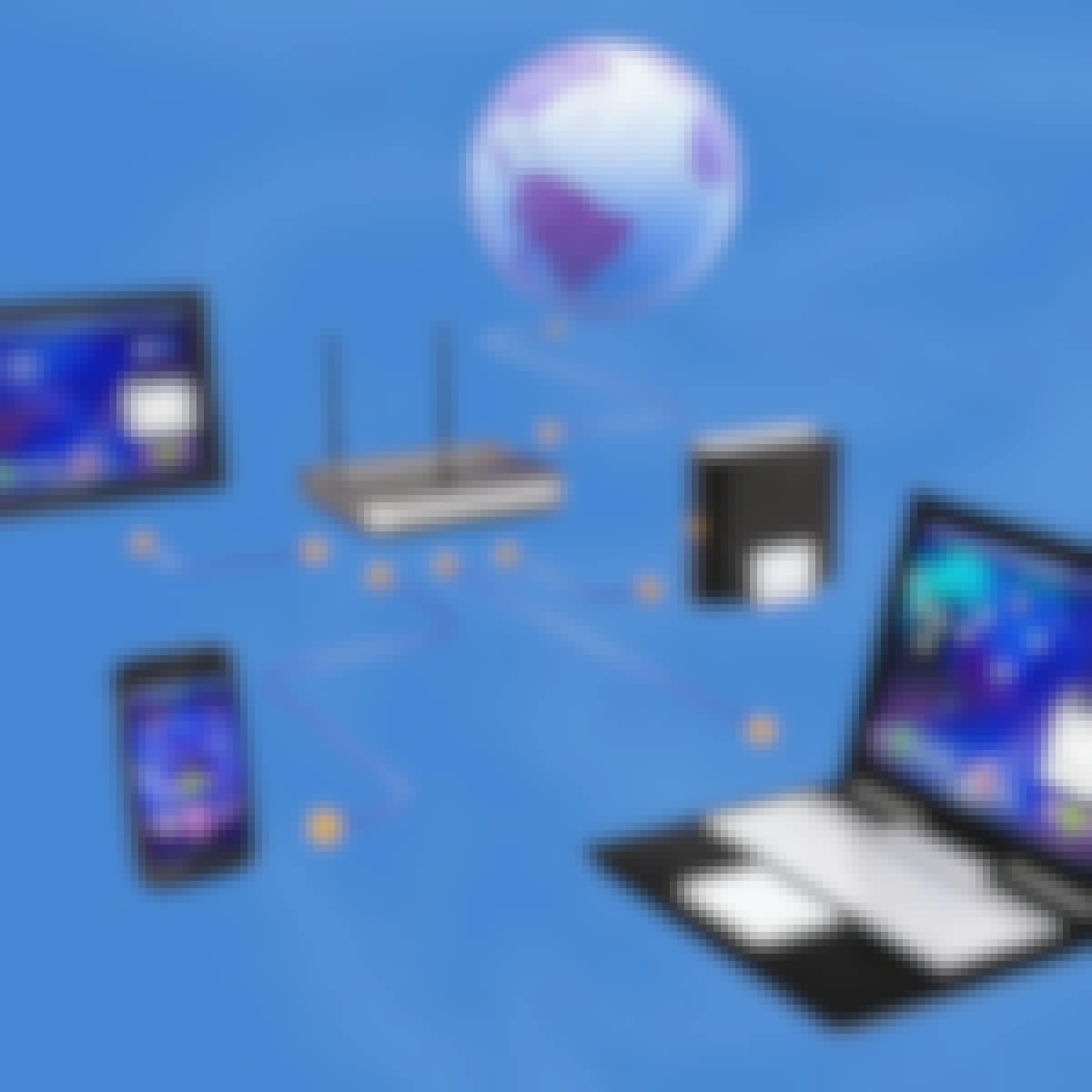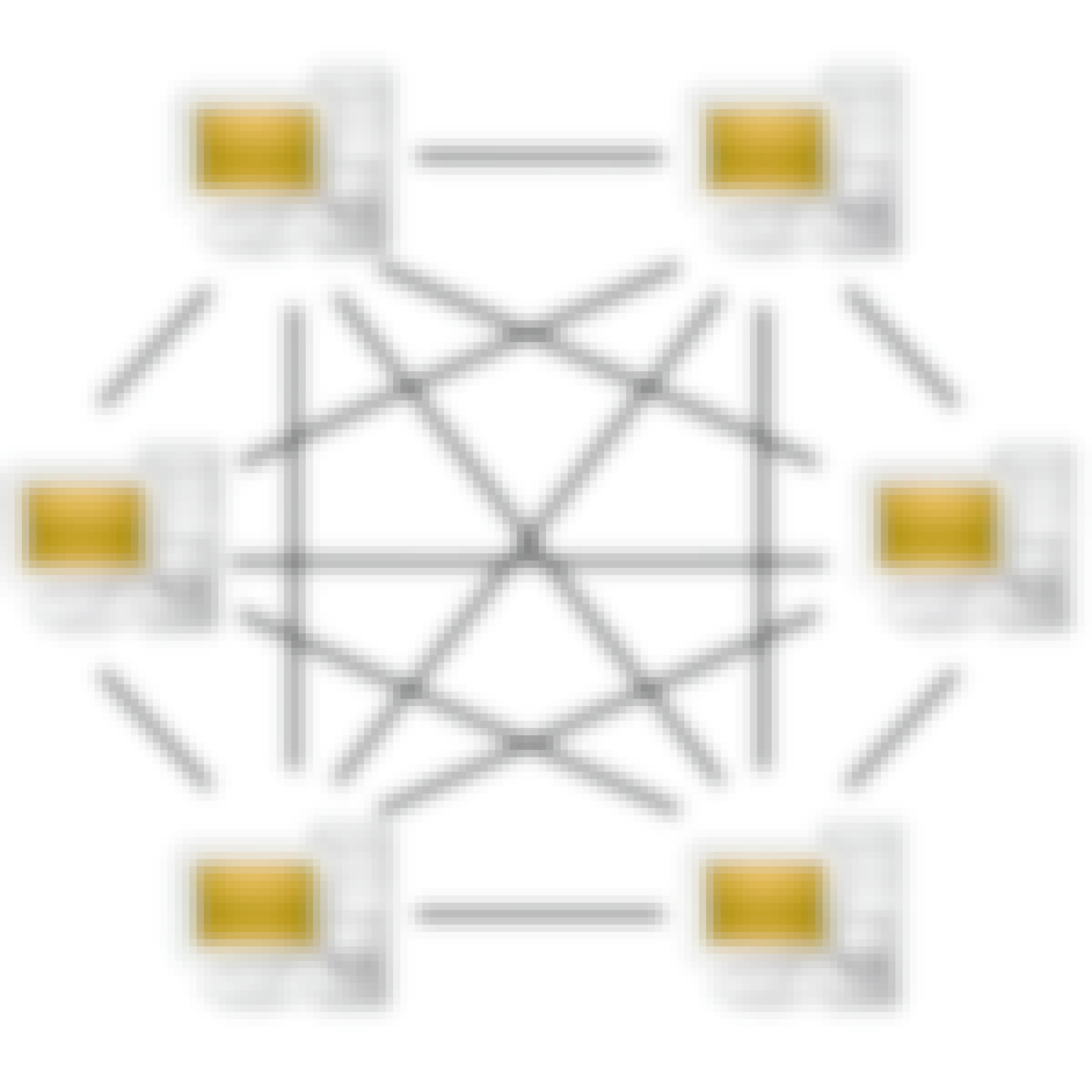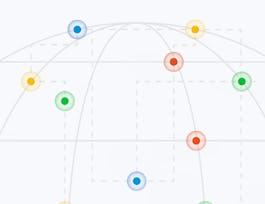- Explore
- Information Technology
- Networking
Networking
Earn Your Degree
Most Popular Courses
Top Rated Courses
Design and Implement Networks at Home and at Work
Launch Your Career
More Networking Courses
Most Popular Certificates
Frequently Asked Questions about Networking
For those looking to learn more about networking, Coursera has some great free courses, such as TCP/IP Protocol Suite, Network Transformation 101, Cybersecurity for Everyone, and Introduction to Cybersecurity Foundations. These courses provide a great foundation for those wanting to explore the world of networking further.
For those looking to get started in networking, a great place to begin is with the Computer Networking course offered . Additionally, the Introduction to Networking and Storage course is a great primer for understanding the basics of networking technologies. For those interested in a deeper exploration of IT fundamentals and cyber security, the IT Fundamentals and Cybersecurity Specialization is a great option. For those looking to to understand the basics of computer hardware and software, the Computer Hardware and Software course is an excellent choice. Finally, the Google Cloud Networking 101 project is a great way to learn the fundamentals of Google cloud architecture.
The Computer Communications Specialization from Coursera is an excellent course for those interested in advanced networking. It covers topics such as network architectures and protocols, network security, and network management. The Fundamentals of Network Communications course provides a great foundation in understanding the basics of networks and their components. The Introduction to Networks with Cisco Devices course is a great way to get hands-on experience with configuring, managing, and troubleshooting Cisco devices. For those looking to sharpen their skills on modern cloud-based networks, the Networking with Google Cloud Platform Specialization provides a comprehensive introduction to the cloud environment. Finally, the Internet of Things Networking course provides an excellent introduction to the rapidly changing field of connecting and managing devices on the Internet of Things.
A computer network is an interconnection of multiple devices that send and receive data to each other using network protocols. Devices in a network typically include computers, mobile devices, hard drives and other storage media, peripheral devices like printers and scanners, and the routers, switches, bridges, and hubs that tie them all together.
These devices may be connected according to different network topologies that describe the pattern of their organization, such as daisy chain, mesh, or tree. Another important characteristic of a network is whether it is a private, closed network or whether it connects to the internet.
Successful IT and computer networking professionals need a combination of technical skills and analytical skills. On the technical side, these roles require expertise in working with computers, smartphones, and other mobile devices and peripherals, as well as all relevant operating systems like Microsoft Windows, Linux, and UNIX. It’s also essential to have a deep technical knowledge of the local area networks, wide area networks, network segments, and intranets that can connect all of these disparate devices and components.
In order to put this technical knowledge to work, IT and computer networking professionals need terrific analytical skills, too. When building these computer networks, they need to be able to evaluate an organization’s needs as well as budget and come up with a plan for delivering a reliable, secure network infrastructure to match. And once the network is up and running, networking professionals rely on their analytic as well as problem-solving skills to troubleshoot any hardware and software issues that emerge.
As more and more business operations become dependent on IT systems (and, increasingly, the cloud), networking professionals are indispensable and in demand. According to the Bureau of Labor Statistics, network and computer systems administrators earned a median annual salary of $82,050 in 2018, and these jobs are projected to continue growing steadily on pace with the rest of the broader economy.
These computer and IT networking professionals are responsible for a variety of roles ranging from the initial design and development of the network infrastructure to its ongoing administration and support. For example, companies that need to build their computer network systems typically hire network architects, wireless network engineers, and network security engineers. For the ongoing operation and troubleshooting of the network, companies may also hire network managers and network security administrators.
Yes! Like other areas of computer science, online courses are a great way to build your expertise in computer networking. Coursera offers Professional Certificates, MasterTrack Certificates, Specializations, Guided Projects and courses in networking from leading companies like Google Cloud, Intel, Amazon, and Cisco.
Popular courses include network protocols and architecture, networking basics, fundamentals of computer network security, as well as courses specific to networking on cloud computing platforms. And if you want to learn about networking in the context of a computer science degree program, Coursera offers affordable and flexible bachelors and masters programs from top-ranked schools like Arizona State University, the University of Illinois, and Imperial College London.
There are hundreds of places that hire someone with a background in networking, such as technology businesses, universities, government institutions, security firms, banks, and many more. All of these have a need for top-quality workers skilled in computer networking.
Networking is all about computers, systems, data, networks, and programming. Before you start to learn networking, you might want to have a basic comprehension of computer and information networks. This is a wide-ranging area that includes knowledge of LAN/WAN networks, intranets, and other data communications networks. You might also have in your background an understanding of additional types of networks, like storage area networks, wireless networks, or virtual private networks (VPNs).
You could know if learning networking is right for you if you like working with ideas and solving problems, and are hardwired for technology and computing knowledge. Many of today’s networking pros have grown up on the web, and having this deep knowledge of how computers are networked via systems is integral to learning networking. You might also know if learning networking is for you if you like working with data, procedures, and processes. In these areas, you are likely apt to think about complex matters, research problems, and create solutions to computer issues.
Among the topics that you might want to study that are related to networking are data protection and privacy topics. Keeping data secure in computer networks is one of the key aspects crucial to information and networking. Having good knowledge of data breaches, how they happen, and how good networking can protect the data would be important topics to study. You can learn more about networking, by having a good grasp of how data storage works in connection with networks, and how this data can be accessed by network administrators.
Online Networking courses offer a convenient and flexible way to enhance your knowledge or learn new Networking skills. Choose from a wide range of Networking courses offered by top universities and industry leaders tailored to various skill levels.
When looking to enhance your workforce's skills in Networking, it's crucial to select a course that aligns with their current abilities and learning objectives. Our Skills Dashboard is an invaluable tool for identifying skill gaps and choosing the most appropriate course for effective upskilling. For a comprehensive understanding of how our courses can benefit your employees, explore the enterprise solutions we offer. Discover more about our tailored programs at Coursera for Business here.



































































































